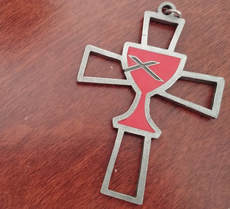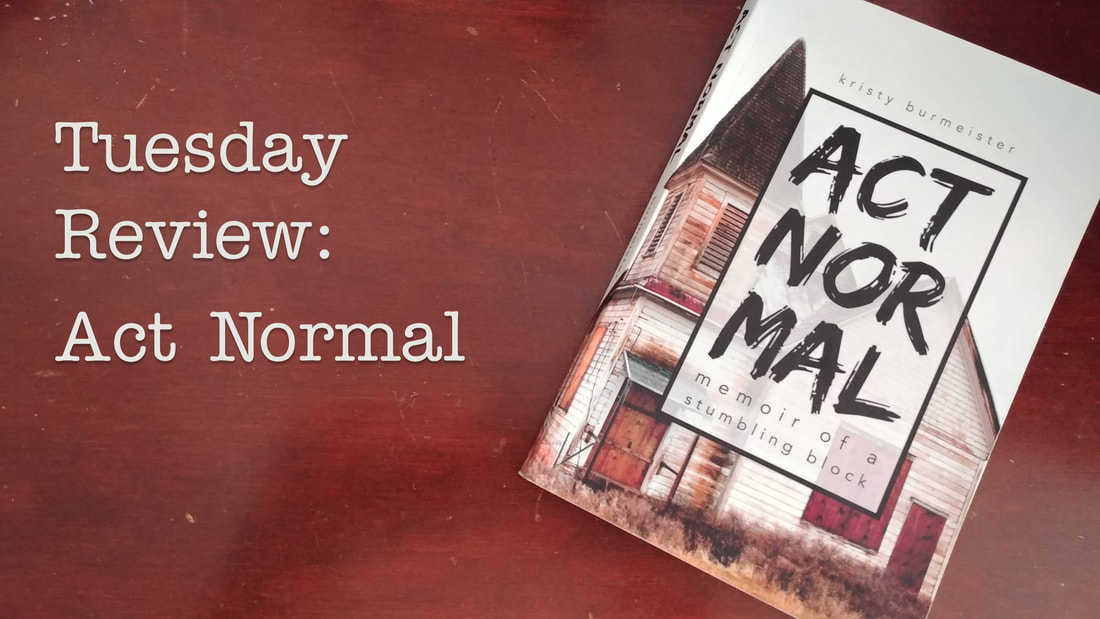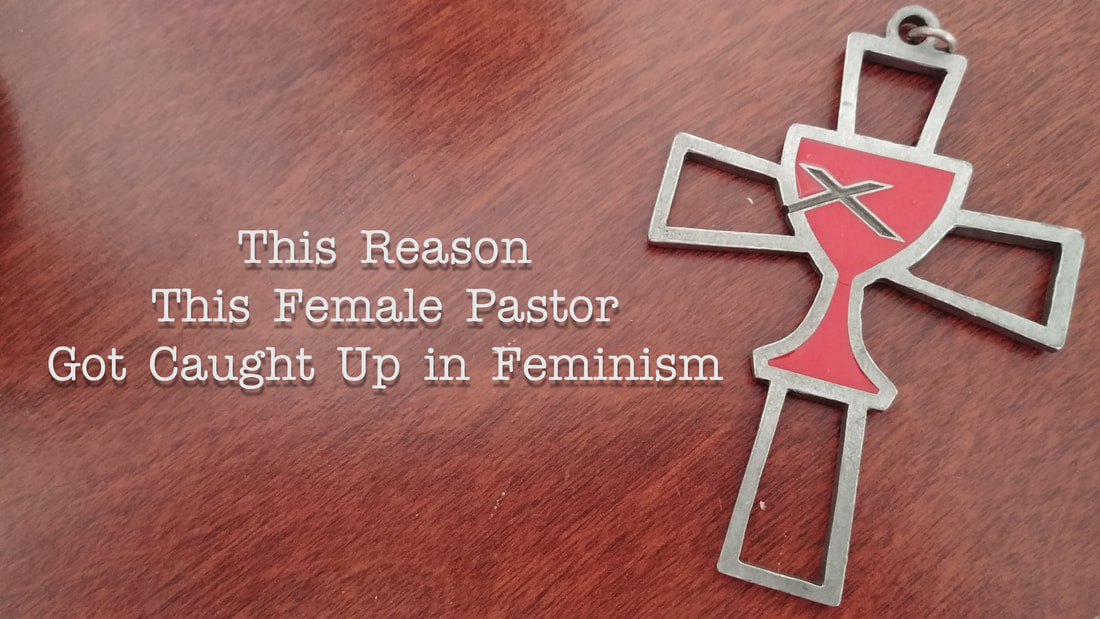|
1 Lord, I have so many enemies! So many are standing against me. 2 So many are talking about me: “Even God won’t help him.” Selah[a] 3 But you, Lord, are my shield! You are my glory! You are the one who restores me. 4 I cry out loud to the Lord, and he answers me from his holy mountain. Selah 5 I lie down, sleep, and wake up because the Lord helps me. 6 I won’t be afraid of thousands of people surrounding me on all sides. 7 Stand up, Lord! Save me, my God! In fact, hit all my enemies on the jaw; shatter the teeth of the wicked! 8 Rescue comes from the Lord! May your blessing be on your people! Selah Psalm 3:1-8 CEB -Rev Melissa Fain- (Soft trigger warning for depression.)
Being able to read the whole story, and having read the whole story year after year, we forget how spiritually dark today really is. As a camper I enjoy the predawn night. The campfires are out, the stars seem to glow in ways I couldn't see before going to bed. At that point I'm used to the dark. I've lived a whole night with it. Holy Saturday, in contrast is a quick and deepening darkness. Now depression? That's a feeling and a darkeness I am not comfortable with, nor do I want to re-experience. It does trick the mind into thinking happiness and hope will never return. All appears lost. I think many Americans can connect with the Disciples this Saturday before Easter. Their hope is dead. Jesus, the one they thought was going to take down the system and become the warrior king of scripture, didn't lift a finger to fight and died on a cross. On Saturday, not only could none of them understand what was coming, they were completely lost in the darkness. What do we do with that today? The Disciples, the ones who saw Jesus face to face, and witnessed his ministry were scared. We, as biblical readers, know there is a blinding light on the other side of their darkness, but they did not. This day is here to remind us the truth about darkness: The darkness does not take away or destroy the things that give us hope and love, it simply hides it from view. God is always there, and always present. Just because you can't see it, doesn't make it any less true. If this particular message seems to be speaking directly to you, I'm so sorry you are dealing with the weight of depression. My personal experience lasted about two years, and part of my journey was being honest about it. Please seek out people with spiritual flashlights to help you see what has always been there. You are not alone, and the light is right around the corner. -Rev Melissa Fain- The first Communion. It is a meal that has been discussed, explored, shared, acted and pantomimed out trillions of times over the centuries. The symbolism is easy enough for a child to understand, while complex enough for sages to write books upon books of what it means. The rich cultural understandings of Communion are all rooted in Maundy Thursday.
What is Maundy Thursday? (I just assumed some of the readers would be asking.) Maundy Thursday always takes place the Thursday before Easter. If we put the timeline together from Palm Sunday to the Resurrection, the first Communion takes place on that Thursday before Jesus is crucified. Maundy is one of those Latin holdovers. The closest word we English speakers have is "mandate." Since this is also the day Jesus washed the Disciple's feet, we are given a mandate to serve the world as Christ has served us. Like I wrote so many years ago, there are tensions we should keep at the Communion table. Our experience should sing, so to speak. I compared these tensions to guitar strings. Both sides have to pull against one another or it is all mess. While there are many tensions I can discuss, here's the one I want you to take with you today. We are called to be served, and to serve others. Maundy Thursday should be a reminder that one of our focuses should be on being served and serving others. We are called to the table while we are also purposefully repelled from it. Being pushed from the table should lead us to service to others. Both of these actions create a beautiful tension that will help us through Holy Week. How are you letting Christ serve you this week? How are you serving others in return? -Rev Melissa Fain- "Do you know how they make this BBQ sauce?" my husband asks. "No idea," I answer. "How?" "They take vinegar that is so pure that if you were to drink it straight up it would kill you. Then they put just a little into the sauce." He knows this because he had a conversation with someone who has made the sauce. In his one sentence, he as turned my peaceful dinner into a life or death experience. --- "I love red velvet cake," the student answers. "Mmm, I do too," the teacher answers. "I love the icing. Cream cheese and vinegar." "Ahh! Eww! Disgusting!" the students moan. "That's how you add that tang of bitterness," the teacher says. "I want my dessert all sweet," the student who loves red velvet comments. "Cooks add bitter to sweet all the time. Some desserts are cooked with sour cream." The conversation was over. The students view of desserts had been smashed to smithereens. --- In the right proportions bitterness can kill us. We don't want to straight up drink that. It's acidic, Our perception of bitterness is often understood in it's pure form. Meanwhile, we don't want complete sweetness either. All sweet is overpowering. It too can destroy the body, but in a different way. What we need is balance.
When we read the stories of people talking about the brokenness of the general church, we need to see ingredients to the perfect solution. Stories are our ingredients, and no one is going to swallow the undiluted truth. It would kill the soul of any congregant willing to digest it. Also, as I mentioned above, no truth at all will set the soul into a diabetic coma of which there is no recovery. What the church needs is a master chef of folding sweetness into the bitter truth. If not that, mixing savory with the bitter to make it part of the main course. In blunt words, most of those wounded by the church haven't figured out how to make their woundedness palatable. I'm not saying create a deconstructed woundedness. I don't want to rip our stories to shreds, and hide them in other things. Rather, I think we need to highlight them in other things. I cannot wrap my head around the idea that the modern institution of church has completely turned into dangerous acid. I also can't believe we have put ourselves into a diabetic stupor because we are stuck on only the good news (lower case done intentionally). I have to believe the Good News (uppercase intentional) can take our brokenness and make something beautiful and substantial with it. I have to believe that same Good News is so glorious we can't help but be in awe of that glory. BUT- we can't have pure anything. We have to believe the villainy can be saved while also accepting that villainy exists. To do this requires not tipping to far into one side or another. It requires balance. After all, we have to eat what we bake. -Rev Melissa Fain- I sat at my computer, staring at my screen. How does one talk about something that is so painful, while also vitally important? Eventually I typed out, "I don't know what to write here," saved the post, and went to work. Previous "Tuesday Reviews" were academic. I wrote them in an academic way. I could view it like a student looking at a dissected frog. I could examine and pull apart without fear of stopping something that hadn't already been stopped. This book, on the other hand, alive. Raw. It cried out to me. This book hit me on so many levels. On the most basic of levels, it hit me as a wounded human being. I could fully understand Kristy's brokenness as a child of brokenness. I know what it's like to not be able to name spiritual, and personal wounds, while the world doesn't know how to react to your woundedness. I know what it's like to have those discard you because they don't know how to deal with you, and (as a child) not understanding how that is fundamentally wrong. It also connected to me as an adult person wounded by the church. I could personally understand how her particular situation wounded her so badly. I knew first hand how church woundedness could hurt so much more deeply than secular woundedness. It's being stabbed in the back by your closest loved ones while they lovingly tell you everything is going to be alright. It's knowing you are bleeding out, but they are prayerfully choosing to peacefully watch you die. Finally, it reminded me I wound others because as a minister I am part of the church. I'll admit, Kristy personally gave me a super easy out. In the last few pages, I'm mentioned, and listed on the side of good. I'm not taking the easy out. As an ordained minister I need to be held accountable. I'm still part of the Body of Christ. Like, when someone murders someone else. We don't just punish the parts of the person that did the murdering. We punish the whole human. We have to see that within the Christian Context.. If a piece of us are acting outside our purpose as Christians, we are all acting out of that purpose. We are guilty, and instead of hacking parts off the Body, we need to holistically start spiritual rehab. Less "they" and "them" words, more "we" and "us" words. What is this book about:In one sentence: The true story of a pastor's daughter, and the church's poor reaction to both her and her stalker. In a more extended way: Kristy tells the story of #metoo and #churchtoo with dark humor that leaves you sitting on the edge of your seat, throwing your book across the room, laughing or a combination of all three. What should you do with this book:Over the years I've received numerous certifications in First Aid and CPR. I'm currently certified in CPR. One of the key features to this kind of training is doing the same action over and over. This is so we become hard-wired when crisis hits. We naturally have a flight or fight response to immediate crisis. It's a holdover from our caveman brothers and sisters who had to immediately respond to that animal with sharp teeth eyeing them in the distance. Today it's far less helpful. If we know how to react in crisis, we are better prepared to deal with it. I believe Act Normal would be a great book to pair with a Crisis Care series in the church. I could see working through Safe Sanctuaries, or Mental Health First Aid, and using Act Normal as a case study. I think there is something important with pairing this book up. Churches (and seminarians) need to see what happens when Spiritual First Aid is not in place, and what are the results. In the same breath, we need to see that there are things we could do, and those things are easy to implement. It's also good because it hasn't been washed pure for the church. This book is honest and real. It doesn't try to fit anywhere specific, it just tells it how it is. The church needs more honest. It's needs a woman who is willing to speak honestly about premarital sex and honestly speak to the failure of the church during that time. It's so honest, I'd call it beautifully honest. I was not paid to do this review. I personally purchased the book with my own time and money. If you would like to purchase your own copy of Act Normal, it is available to purchase on Amazon. This is a good book. It's written well, and worth your time whether you are a minister, congregant, or just someone who likes to read.
-Rev Melissa Fain- Oh, I had it all figured out approaching my ordination. It appeared every female minister I knew was some kind of social justice feminist. I saw it like a one note song. I wasn't going to be like them. I was going to delve into the bible and be balanced. Sure, gender equality needed to be discussed, but it wasn't the only discussion point. I was going to be the one to prove being female and a pastor didn't mean one had to solely focus on feminism. I was arrogant. I was like the Pharisee openly praying. "Thank goodness I'm not like them!" Then I was ordained, and I began to see the problem. Unless I was preaching in a brick and mortar church, I'm almost always immediately questioned about my call. Sometimes, it's as blunt as, "You can't do that." Sometimes, it's as passive aggressive as simply walking away. Always, my gender had to be "overcome" before the message could be heard. Honestly, when I wrote the post "Dorothy Gale Never Grow Up," I wrote it as a catch all to get past that opening discussion and really get into the meat of scripture. Instead, it appears it has become the subject most would rather focus on when I want to talk about something bibically different.  Becoming the thing I swore I'd never become has been an interesting journey, but I have a deeper understanding as to why. Cutting conversation short is a tool people used because they think what I'm saying is dangerous. It's not that the content is terribly scandalous or way off base. It's that they fear even listening to me will damn them. I went into ministry already knowing this, which is why I've taken those questioners seriously. Only, it's a constant barrage. If I want to talk about the Good Samaritan, someone tells me they will pray for my soul. If I want to talk through Job, someone decides to focus in on my username (RevMelissa.) I lose if I don't, because the person feels justified in hijacking the discussion. I lose if I do because I've removed myself from the theological discussion I originally wanted to be part of. But I try to remember what brought me to acceptance of female ministry to begin with. My perspective on women being pastors was not won with proof-texts. I was changed when I went to a church and a woman stepped up and preached. That was in an institution that had already fought and won that battle. Online, that battle is alive and well. I have the opportunity to talk with people who are cloistered in traditions that would never even be given the opportunity to hear female clergy. Simply existing allows a seed to be planted. That's still difficult. Countering a proof-texter feels like a nice safe shield to stand behind. There are so many personal attacks those people give unrelated to the meat of the messages I give, it's difficult to step back and let the content speak for itself. Yet, that's how minds are changed. It's letting our actions speak louder than our words. It's speaking with kindness when others react with venom. It's putting down the arrogance of the past, and realizing we are sisters in this fight, with brothers fighting beside us. The real reason I fight this fight, is so some future minister can say she isn't going to spend her time focusing on feminism, and she won't have to. |
Categories
All
Archives
October 2023
|








 RSS Feed
RSS Feed